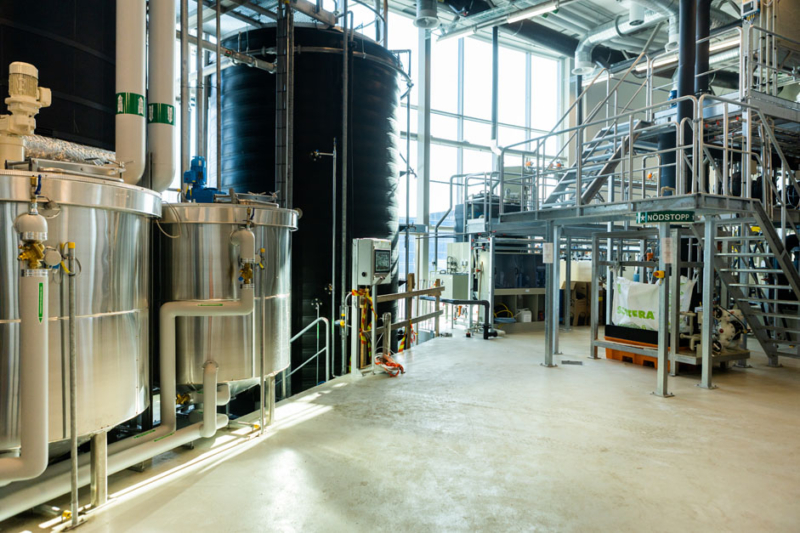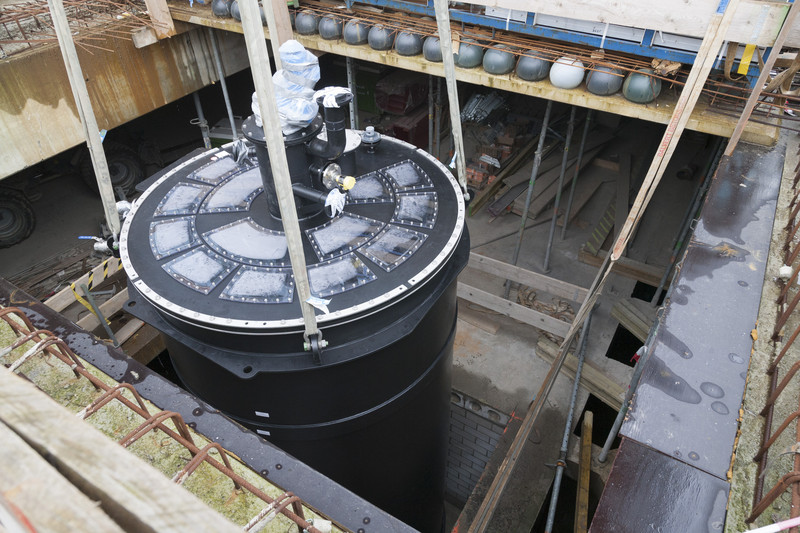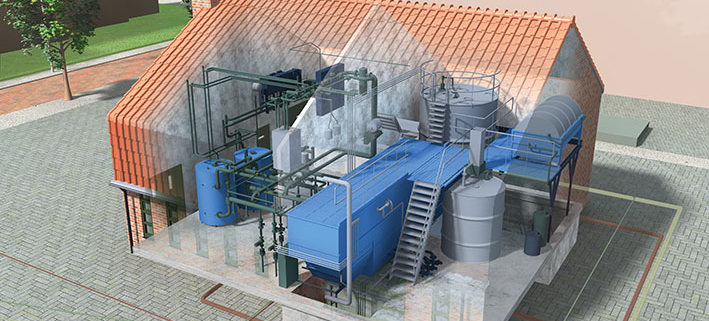We recognize that innovation in wastewater technology is of utmost importance. Main issues are how to reduce energy consumption and contribute to a circular economy. This has led to new innovative sanitation solutions such as decentralized wastewater treatment, resulting in the regeneration of valuable material, and residues that are reused for energy production. In close cooperation with our sister company DeSaH B.V. we are able to market these new sanitation technologies.
Reco Lab, Helsingborg (S)
The new city district Oceanhamnen, part of the H+ project in Helsingborg (Sweden) implemented a new innovative and sustainable wastewater treatment facility. The new residences and office buildings are equipped with vacuum toilets and kitchen grinders. Black and grey wastewater is collected and treated separated at source. For this new wastewater treatment plant Landustrie used the Desah concept, emphasizing the recovery of valuable raw materials such as fertilizer and biogas, as well as heat recovery.
Landustrie obtained the order for the electromechanical equipment from NCC Sweden. The project won the Global Water Award 2021 in the category Wastewater Plant of the Year. RecoLab also functions as a showroom for education as well as test bed for technology development.
Government building The Hague
For the Dutch government building “Nieuwe Rijkskantoor” located at Rijnstraat 8, The Hague, Landustrie realized a decentralised water treatment plant. This new accommodation for approx. 6000 civil servants from a number of government ministries is equipped to process the wastewater and recover energy and nutrients. The existing waste streams from the office are treated in the building; the black water from vacuum toilets is collected together with the organic waste in a concentrated manner and processed in a digester tank. The digestion process produces renewable energy in the form of biogas that is used to heat the building. The yellow water from the urinals is processed in the struvite reactor. Phosphate is recovered from the collected urine in the form of struvite. This can be applied directly as fertilizer. This new installation will pay for itself through savings on water use, water treatment levy and costs of waste treatment and energy. The Ministry building is the largest office where such a sustainable sanitation concept has been applied.

